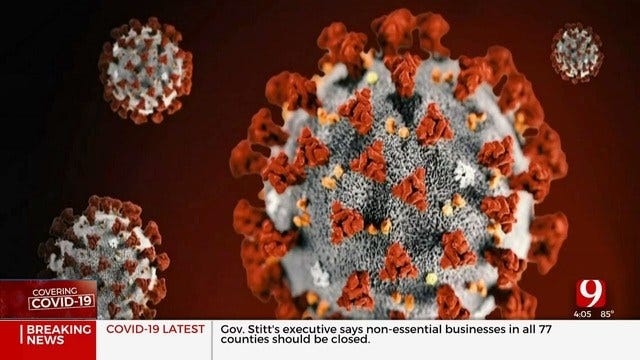Okla. Doctor Explains How COVID-19 Mutated
Research shows COVID-19 has mutated at least eight different times.Tuesday, April 7th 2020, 12:31 pm
Research shows COVID-19 has mutated at least eight different times.
Coronavirus and the flu are an RNA virus. Both can change at a fast rate and this is why we see a new flu vaccine every year.
OU Medicine's Dr. Dale Bratzler said although COVID-19 has mutated, the good news is that the changes appear to be minor.
"They haven't changed the virulence of the virus. It doesn't appear to be getting any worse,” Bratzler said.
Bratzler pointed out that viruses can only replicate when they infect a cell in a host like humans "when that genetic code is being reproduced sometimes they're are missteps in that process."
Bratzler said the virus makes these changes in its effort to survive for longer, "if they mutate too greatly, the virus will not be able to replicate in that particular host.”
"Historically, when a virus adapts to a new host, it actually becomes less pathogenic for that host," OU Health and Sciences Center's virologist Dr. James Papin said.
Fortunately, Bratzler said the key makeup of the virus does not appear to be changing "the receptor that actually attaches to the lung. The human cells that doesn't seem to be changing that much.”
Which is helpful for scientists to produce a vaccine, but also what makes COVID-19 so dangerous.
"It attaches to the lung very, very well," he said.
"We’re hoping to create a vaccine that will create a strong immunity for this particular infection. That hopefully a vaccine with a couple of doses will give you protection for a long period of time,” Bratzler said.
Research said there is still no data showing that COVID-19 could infect your domestic animals, although it has been seen in tigers.
More Like This
April 7th, 2020
April 24th, 2020
Top Headlines
December 11th, 2024
December 11th, 2024
December 11th, 2024
December 11th, 2024










